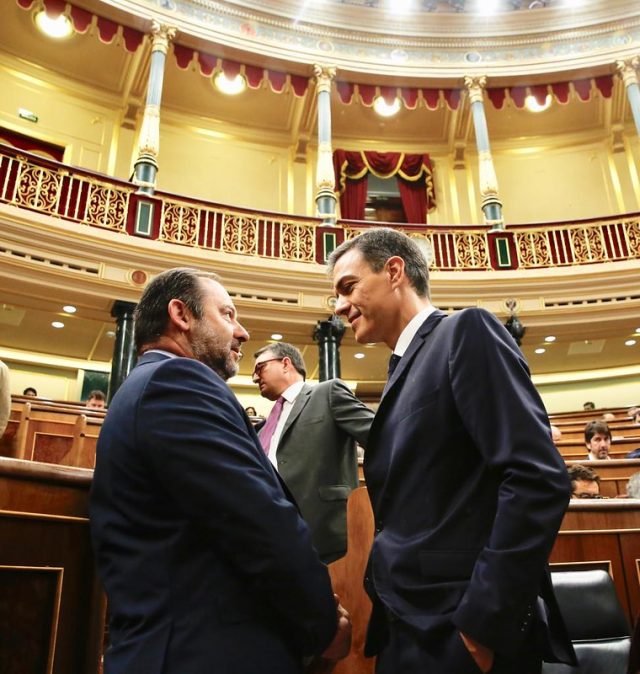
José Luis Ábalos, Pedro Sánchez’s former Minister for Transportation, has added new chapters to the already extensive corruption scandal that has tarnished his reputation and affected the Spanish Socialist Party (PSOE). The recent investigation by the Anti-Corruption Prosecutor’s Office into the former Minister has revealed connections between Ábalos and a fraud network in the hydrocarbon sector, led by businessman Víctor de Aldama and his associates. This controversy joins older, but equally significant revelations, such as his ties to Nicolás Maduro’s Venezuelan regime and his involvement in the reception of Delcy Rodríguez, the Vice President of Venezuela, during a controversial visit to Madrid in 2020.
The main case currently under investigation by the Anti-Corruption Prosecutor’s Office links Ábalos to VAT fraud in the fuel sector. According to the investigation, his advisor, Koldo García Izaguirre, used his position of power to benefit businessmen like Aldama, who bought and sold hydrocarbons without paying the corresponding taxes, using licenses irregularly granted by the government.
But this already scandalous scheme involves even more participants. Recently, it has come to light that Ábalos held meetings with Víctor de Aldama and other key businessmen just two days before Delcy Rodríguez arrived at Barajas Airport in January 2020.
This meeting takes on special significance because, as is well known, the encounter between Ábalos and Rodríguez sparked significant controversy at the time, as the Venezuelan Vice President was banned from entering European territory due to EU sanctions. This meeting, which was officially described as a brief airport encounter, was criticized by the opposition as evidence of the close ties between Pedro Sánchez’s government and the Maduro regime.
After a series of conflicting statements by Ábalos regarding this encounter over time, new revelations have surfaced indicating that Ábalos also met with Delcy Rodríguez’s brother in Madrid, seeking to open a channel of dialogue between the Venezuelan regime and the Sánchez government.
This information further worsens the perception of collusion between the Spanish government and Chavismo, a connection criticized both by the opposition and by sectors of Spanish society that disapprove of any rapprochement with the Maduro regime.
Politically, this series of scandals and connections has damaged not only Ábalos’s image but also that of Pedro Sánchez himself. Although the Prime Minister has attempted to distance himself from his former minister, his ties to these fraudulent operations, combined with the closeness to the Venezuelan regime, have cast suspicion on the PSOE for corruption and unethical practices. Sánchez, who has repeatedly expressed his commitment to transparency and ethics, now faces a complex situation in which he can no longer avoid questions about his government’s role in these matters.
According to the ongoing investigations, without the collaboration of Ábalos and his team, it would have been very difficult for these businessmen to access the benefits of the hydrocarbon licenses. Suspicion also surrounds possible irregular financing that may have taken place, benefiting not only the businessmen but also high-ranking officials within the PSOE, which would elevate the case to an even more serious level.
Ábalos’s resignation in 2021 was not enough to quell the scandal, as recent revelations suggest his involvement in these schemes may have continued long after he left the government. The Delcy Rodríguez case, coupled with his relationship with Aldama and the fuel fraud, paints a picture of systemic corruption within Ábalos’s circle, directly implicating the PSOE.
In conclusion, the situation surrounding José Luis Ábalos and his involvement in various corruption schemes is a clear example of how a lack of transparency and murky connections can severely damage the reputation of a political party and, in this case, a government. Despite Pedro Sánchez’s efforts to distance himself from his former minister, the connection between the Koldo case, the hydrocarbon fraud, and the relationship with Venezuela continues to raise doubts about the integrity of the socialist administration.



 Subscribe
Subscribe